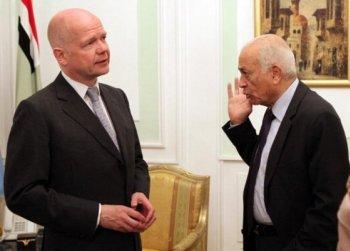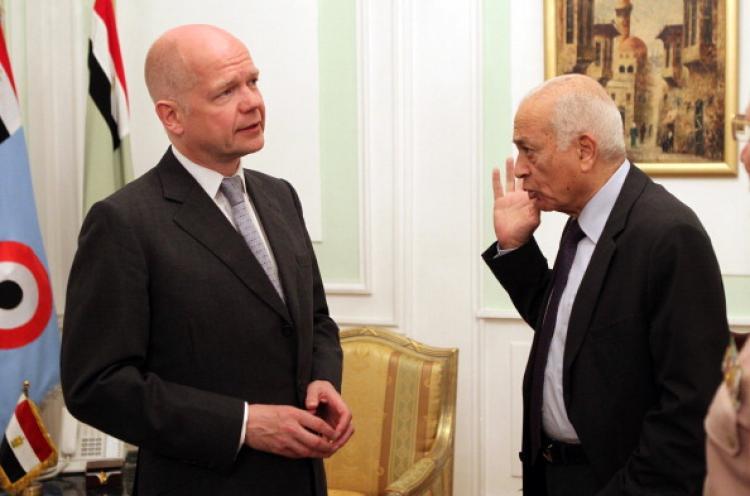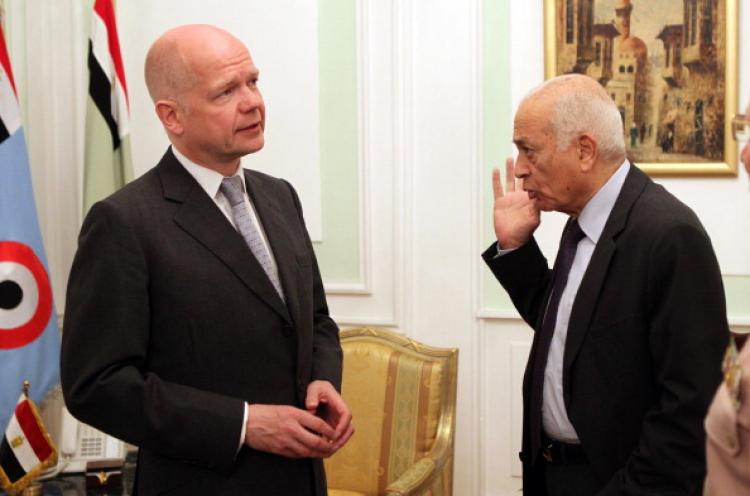Bin Laden Death Is Cause for Vigilance: UK Foreign Secretary
Bin Laden death means parts of al-Qaeda that will try to show that they are still in business in the coming weeks, says Hague

British Foreign Minister William Hague and his Egyptian counterpart Nabil Elaraby (R) talk together prior to meeting with Field Marshal Hussein Tantawi head of the Egyptian Armed Forces Supreme Council in Cairo on May 2, 2011. Khaled Desouki/AFP/Getty Images
|Updated:





